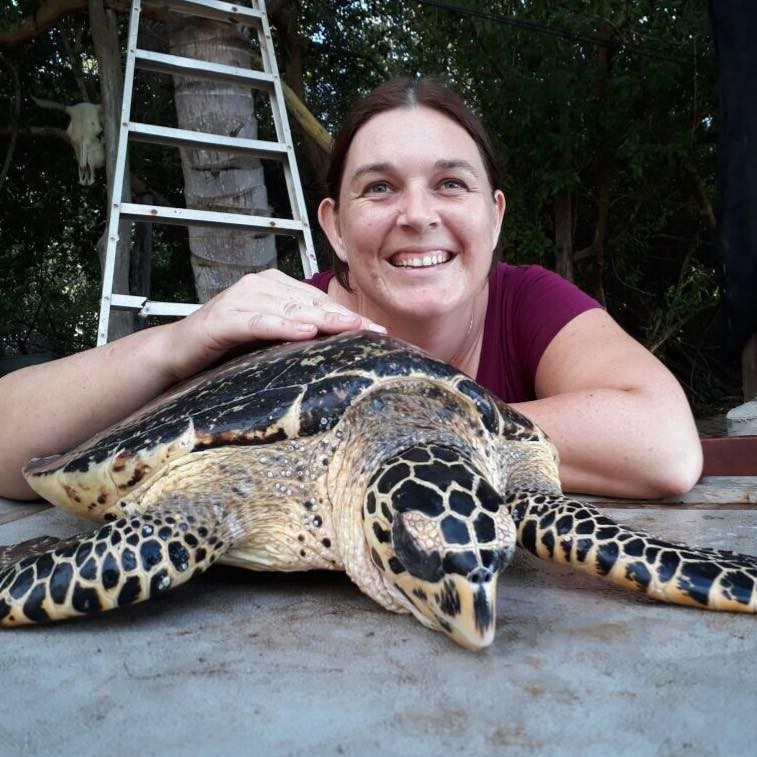Our world-leading marine research underpins a wide range of undergraduate and postgraduate programmes: Research-led teaching | Exeter Marine | University of Exeter. In our Graduate in Focus series we look at the achievements of our MSc graduates who have excelled in conservation around the world since studying with us.
Today we meet Catherine Hart, MSc Conservation and Biodiversity graduate (2009) and now scientific director for the Red Tortguera (Sea Turtle Network) in Mexico!
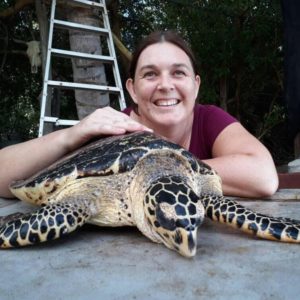
Hi Catherine! First off, why don’t you tell us what you are up to now and how you got there?
I moved to Mexico when I was 19 after having been a volunteer on a sea turtle conservation project in Nayarit state and then undertaking an undergraduate degree there. It had always been my intention to go straight back after the master’s course. On arriving back, I began to run the field conservation work for a small NGO and then when it was low sea turtle season taught secondary school science and did a little gardening/child minding on the side. In 2010 I decided that a PhD would be beneficial and allow me to continue my sea turtle conservation and research activities. The PhD was with the Universidad de Guadalajara in Puerto Vallarta and was supported through a scholarship from the Mexican government. During that period, I increased the number of nesting beach conservation projects that I was managing from one to seven and co-founded an NGO “Red Tortuguera” (sea turtle network). After the PhD I was accepted into the Mexican Researchers System (Sistema Nacional de Investigadores) which allows me to continue my research while conducting sea turtle conservation activities.
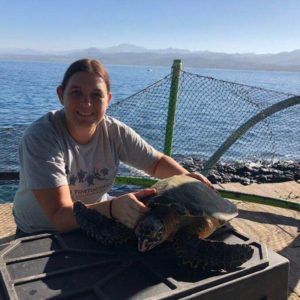
What did you enjoy most about studying your MSc with us at the University of Exeter Cornwall Campus?
I loved being by the sea. I am from Northampton so that’s about as far from the ocean as you can get in the UK. I loved how dynamic the UK tides are and I even loved the seagulls (which are not that popular).
Everyone on the course were amazing and had all done different conservation and research activities either during their undergraduate degrees or as volunteers. It was a great opportunity to learn about different places and conservation issues. The researchers at the Centre for Ecology and Conservation are world class and very approachable. I always felt that I could ask questions and didn’t have to be embarrassed for having no idea about some things that others knew from their undergraduate degrees in the UK.
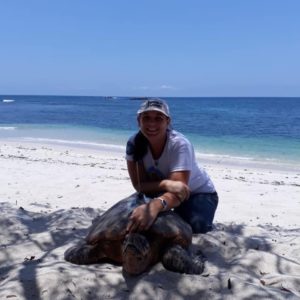
What skills and experiences from the MSc have been most useful in your career?
I would say everything I learnt at Exeter has been useful. Firstly, having studied at a university known for its research on sea turtles has opened many doors not to mention that my masters project was on Mexican sea turtles and I was put in contact with some of the top researchers worldwide for East Pacific green sea turtles who I may not have gotten to know so early in my career if it hadn’t been for the introductions made by the Exeter researchers. This is something I am very grateful for as not only has it been great for my research and conservation activities but also for the friendships I have made. On a more academic note the courses on statistics and mapping software have come in very useful! Perhaps the most important thing that I learnt at Exeter is to have the confidence in myself and the experience that I had gained from years of fieldwork in Mexico.
Finally, why did you choose your career path and do you have any advice for those looking to pursue something similar?
It’s great to be able to help study and protect sea turtles and other local wildlife where I live. I like to think that I am making a difference. I have been in the same place long enough to see some of the results of our conservation activities and that is very rewarding.
Never turn down an opportunity to tag along on research trips, learn a second language and perhaps take a course in marketing.
Any advice for anyone thinking of applying to the University of Exeter?
Just do it.
Thanks Catherine!!
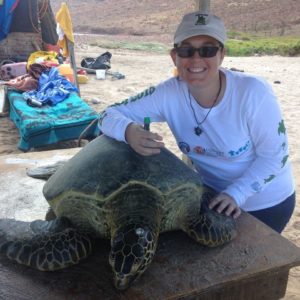
If you want to find out more about any of our suite of #ExeterMarine Masters and Undergraduate courses use the links below!
- NEW: MSc Marine Environmental Management
- NEW: MSc in Marine Vertebrate Ecology and Conservation
- MSc in Conservation and Biodiversity
- MSc in Conservation Science and Policy
- MSc in Evolutionary and Behavioural Ecology
- MSc in Sustainable Development
- MSc in Environment and Human Health
- MSc in Renewable Energy Engineering
- BSc Marine Biology
- BSc Zoology
- BSc Environmental Science
- BSc Conservation Biology and Ecology
- BSc Evolutionary Biology
- BSc Animal Behaviour
- BEng Renewable Energy Engineering

